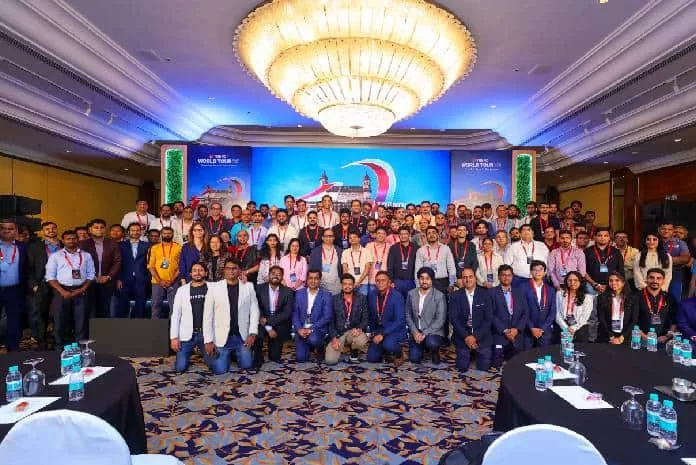Trend Micro’s Risk to Resilience World Tour Kicks Off in Mumbai with a Focus on Proactive Security in the Age of AI – CRN


Trend Micro launched the India chapter of its Risk to Resilience World Tour 2025 in Mumbai, bringing together over 130 security leaders from 70 organisations (Enterprises and Government). This year’s theme, “Proactive Security Starts Here,” highlighted the urgent need to move from reactive defenses to forward-looking, AI-driven security strategies.
Sharda Tickoo, Country Manager for India & SAARC at Trend Micro, in her keynote address highlighted how attackers are increasingly leveraging AI to automate and accelerate cyberattacks, reducing exploit timelines from weeks to hours. Yet, she emphasised that defensive AI is outpacing offensive AI, enabling real-time detection, automated response, and proactive threat mitigation. She introduced Agentic AI as a paradigm shift in cybersecurity—where intelligent AI agents work in parallel, sharing context to deliver unified, pre-emptive protection. At the core of this transformation is Trend Micro’s AI powered platform — Trend Vision One™, integrated with specialised cybersecurity LLM, TrendCybertron, which combines predictive analytics, risk scoring, and automated remediation across environments. While AI is transforming SOC operations, she reiterated that a fully autonomous SOC is still aspirational, with human judgment still having a pivotal role in decision-making.
The panel discussion titled, “Proactive Security in the Age of AI” brought together Rajesh Thapar, CISO, NSE and Abhijit Chakravarty, EVP – Networks & Cybersecurity, Kotak Mahindra Bank to discuss what proactive security means in practice. Mr. Rajesh Thapar, CISO, NSE, noted that proactive security has become a strategic imperative, which requires alignment within the ecosystem that goes beyond being tactical or reactive. Mr. Abhijit Chakravarty, EVP – Networks & Cybersecurity at Kotak Mahindra Bank, stressed that true proactiveness begins with visibility—i.e., visibility into unmanaged assets and user activity—and the ability to take data and make it actionable intelligence.
On vulnerability prioritisation, Mr. Thapar noted the limitations of legacy scoring methods and the need for contextual risk-based methods. Mr. Chakravarty emphasised the role of criticality-based methods and operational limitations, and the importance of framing risk in business-relevant terms. He shared a framework called TRIC (Threat, Risk, Impact, Consequence), which helps bridge communication between security teams and business stakeholders. Both panellists noted artificial intelligence as an enabler as well as a threat, and agreed that while AI can greatly augment SOC capabilities, human oversight is required for effective and responsible security operations.
The industries in the Mumbai region, especially within manufacturing and BFSI, are pioneers in embracing emerging technologies and advanced security measures—making it a mature market for cybersecurity adoption. The BFSI sector, in particular, demands strict compliance, driving increased interest in hybrid security solutions that meet evolving operational and regulatory needs.
The Mumbai event marks the beginning of a four-city India tour, following the global success of last year’s series across 60+ countries. The next leg of the event is scheduled to happen on 20th June, 2025 in Kolkata.







